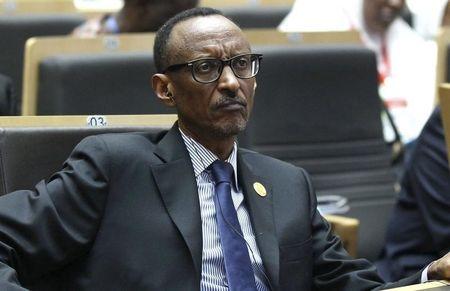Advertisement
Rwanda court agrees to hear case to block president's third term
KIGALI (Reuters) - Rwanda's Supreme Court said it would hear a case brought by the main opposition party that aims to block changing the constitution to allow President Paul Kagame to run for a third, seven-year term.
The debate about term limits has flared in several countries in Africa. The United States, a major donor to Rwanda, said last week it was concerned by the country's decision to set up a commission that could lead to changing the constitution.
Judge Immaculee Nyirinkwaya, who heads a panel of eight judges, said the Supreme Court rejected the government attorney's argument that the case should be thrown out and the next hearing was set for Sept. 23.
The Democratic Green Party, the tiny but main political opposition group in a nation where rights groups and activists say opponents of the ruling Rwandan Patriotic Front are stifled.
Officials dismiss such charges, saying the government guarantees free speech.
Kagame, a rebel leader-turned-statesmen, has won international praise and local popularity for rebuilding the small nation after it was shattered by genocide in 1994, when 800,000 mostly Tutsis and also moderate Hutus were massacred.
But Washington and other donors have voiced concerns about moves to change the constitution, pointing to the political crisis that rumbles on in neighboring Burundi after President Pierre Nkurunziza secured a third term in a disputed election.
The U.S. State Department said in a statement on Sept. 4, "We do not support those in positions of power changing constitutions solely for their political self-interest."
Rwanda's parliament, controlled by Kagame's supporters, backed a motion in July to let Kagame run again, a move expected to lead to a referendum on the constitution.
That decision followed the submission to parliament of a petition supporting a change signed by 3.8 million people in the country whose population is about 12 million.
Kagame has not directly said he wants to run again but has said he was open to persuasion about changing the constitution.
(Writing by Edmund Blair; Editing by Aaron Maasho and Louise Ireland)



















Add new comment